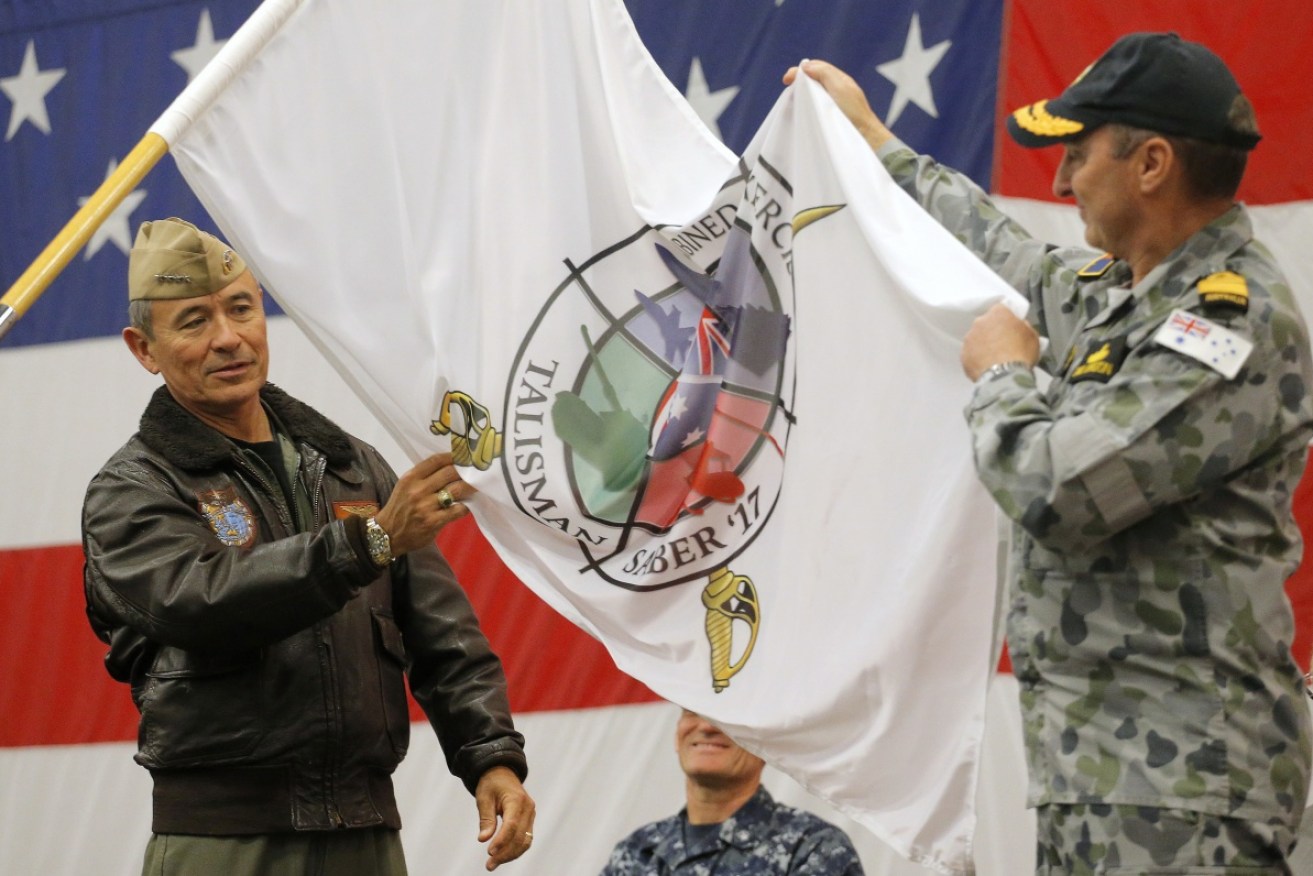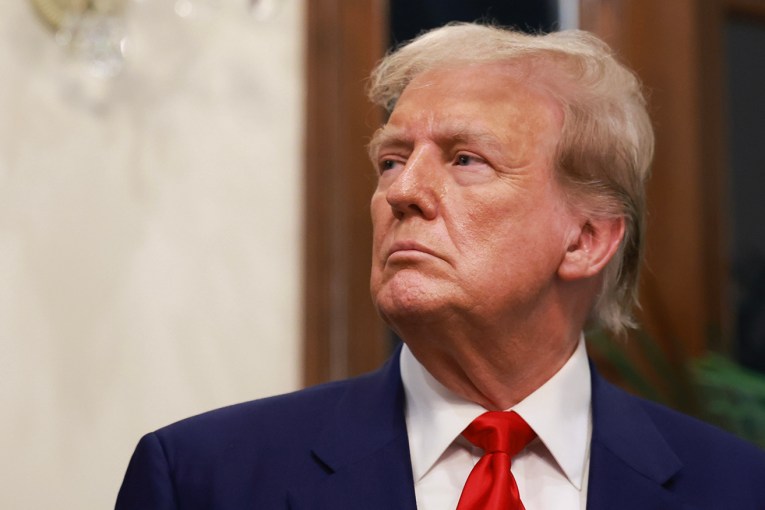America’s new man in Canberra will be Donald Trump’s ‘more robust’ voice in Asia


New ambassador Harry Harris (left) and Australian Navy Vice Admiral David Johnston in Sydney last June. Photo: AAP
Policy experts say the United States’ appointment of a high-ranking naval officer to be the new ambassador to Australia signals a more “robust” approach towards its position in Asia.
The White House announced on Saturday the US Pacific Commander Admiral Harry Harris would take on the job in a statement praising the “highly decorated, combat proven naval officer” with extensive knowledge, leadership and geo-political expertise in the Indo-Pacific region.
The 61-year-old has been strident on one of the big issues straining relations between the US and China – the militarising of atolls and man-made islands in the South China Sea.
Admiral Harris has said China is adding to tensions in the region by creating a “great wall of sand”.
Strategic Policy Institute senior analyst in defence strategy Malcolm Davis told The New Daily Admiral Harris would be “much more proactive” on a defence level.
Dr Davis said the appointment could see greater US military access to Australian facilities and closer integration of US and Australian defence forces. It might also propel Australia to adopt a higher profile in the region.
During Admiral Harris’ tenure as head of US forces in the Pacific, tensions over North Korea’s missile and nuclear programs increased as President Donald Trump’s administration and Pyongyang exchanged threats.

Australia’s Chief of the Defence Force Mark Binskin (centre) introduces Prime Minister Malcolm Turnbull to Admiral Harry Harris in New York last May. Photo: AAP
Admiral Harris, who was appointed to his former role by Barack Obama, favours diplomacy in countering North Korea’s missile threat.
He is strong supporter of so-called freedom of navigation operations under which US ships and aircraft challenge other countries’ maritime claims.
Two deadly collisions involving US warships in the Pacific also occurred during his time as head of Pacific Command.
Ten sailors aboard the guided missile destroyer John S. McCain died when it collided with a tanker near Singapore on August 21. Its sister ship, the Fitzgerald, almost sank off the Japanese coast on June 17 after colliding with a container ship. Seven crew died.
Dr Davis said Admiral Harris also provided a more “robust” perspective than many other candidates on China and would not stand idle as the US asserted itself in the region.
“This is a good thing for the US-Australia relationship and will allow us to work more closely together with an arising China,” Dr Davis said.
“Australia is one of the United States allies and it’s a particularly special relationship, akin to our relationship with the United Kingdom.”
Dr Davis said the decision also pointed to the US returning its attention to the Asia-Pacific region after a focus on the Middle East under former president Barack Obama.
The US is conscious of China’s rise and recent actions in the South China Sea and are not going to concede.”
University of Western Australia professor and senior fellow of Perth USAsia Centre Peter Dean told The New Daily Admiral Harris was well qualified, but he noted some observers are wondering if he is “too hawkish” on China.
“He has a very strong stance in relation to China, and the question remains whether he will be a diplomat in this job,” Dr Dean said.
“It certainly sends a message in a way about their [United States] relationship with Australia and vis-à-vis China.”
Julie Bishop welcomes appointment
“Australia warmly welcomes the appointment of ambassador designate Harry Harris,” foreign affairs minister Julie Bishop told reporters in Auckland on Saturday.
“He has visited Australia many times. He’s well known to us. He’s a highly decorated naval commander and we look forward to his Senate confirmation proceeding.”
Two US officials, speaking on the condition of anonymity, said Admiral Harris’ likely replacement in the Pacific was Admiral Philip Davidson, commander of US Fleet Forces Command.
The officials did not comment on when an announcement could be made. Any replacement will have to be approved by the US Senate.
-with AAP






